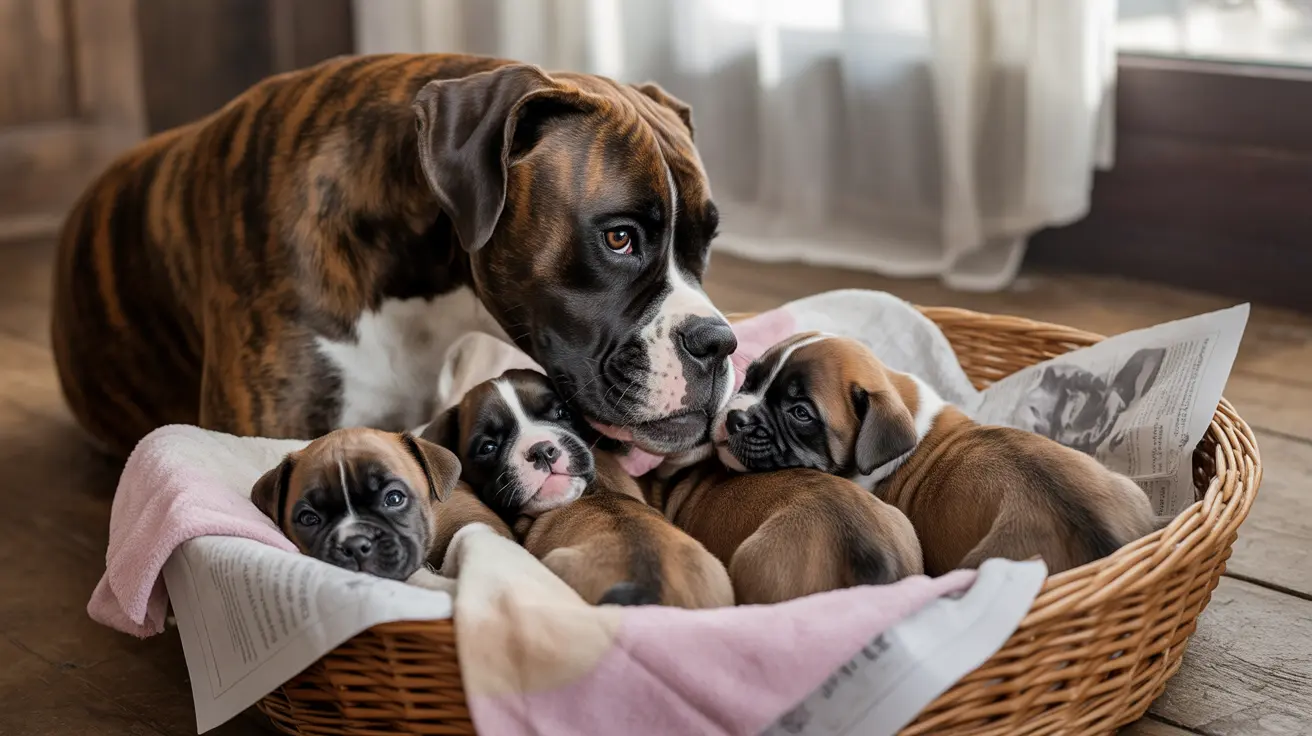The relationship between mother dogs and their puppies is a fascinating blend of instinct, biology, and emotional connection. While humans often wonder if dogs experience love for their offspring in the same way we do, the reality is both simpler and more complex than we might imagine.
In this comprehensive guide, we'll explore the deep maternal bonds that develop between mother dogs and their puppies, examining both the biological drivers and emotional aspects of this unique relationship.
The Science Behind Maternal Bonding
Mother dogs experience significant hormonal changes during pregnancy and after giving birth that drive their nurturing behaviors. The primary hormone responsible is oxytocin, often called the "love hormone," which promotes bonding and maternal care behaviors.
These hormonal changes trigger several instinctive behaviors in mother dogs:
- Nesting before birth
- Constant physical contact with puppies
- Protective behaviors
- Attentive nursing and grooming
Understanding Mother Dog Behaviors
In the first few weeks after birth, mother dogs display remarkable dedication to their puppies. They rarely leave their side except for essential needs, spending nearly 24 hours a day nursing, cleaning, and protecting their offspring.
These maternal behaviors include:
- Continuous nursing sessions
- Regular grooming and cleaning
- Teaching basic social skills
- Protecting puppies from perceived threats
The Role of Instinct vs. Emotion
While mother dogs clearly show attachment to their puppies, it's important to understand that their care is primarily driven by biological imperatives rather than emotional reasoning. This doesn't make their dedication any less remarkable, but it helps explain why maternal behavior can vary between different dogs.
Research has shown that mother dogs can recognize their puppies' individual scents and vocalizations, responding specifically to their offspring's needs. This sophisticated recognition system ensures optimal care for each puppy in the litter.
Long-term Bonds and Recognition
Studies have revealed that both mothers and puppies can recognize each other even after long periods of separation. However, unlike human parent-child relationships, most mother dogs naturally distance themselves from their puppies once weaning is complete.
This natural separation process typically begins around 8-12 weeks of age, as puppies become more independent and mother dogs' maternal instincts begin to fade.
Frequently Asked Questions
Do mother dogs actually love their puppies or is their care purely instinctual?
While mother dogs show strong attachment to their puppies, their care is primarily driven by hormones and instinct rather than emotional love as humans understand it. However, they do form genuine bonds with their puppies during the nursing period.
How do hormones like oxytocin influence a mother dog's behavior toward her puppies?
Oxytocin promotes nurturing behaviors, physical bonding, and milk production. This hormone helps ensure mothers stay attentive to their puppies' needs and maintain close physical contact during the critical early weeks.
Can dogs recognize and remember their own puppies after long periods of separation?
Yes, studies show that dogs can recognize their puppies through scent even after extended separation periods. However, this recognition doesn't necessarily translate to maintaining emotional bonds long-term.
Why do mother dogs lick and nuzzle their puppies so much in the first weeks after birth?
This behavior serves multiple purposes: stimulating puppies to breathe and eliminate waste, keeping them clean, bonding through physical contact, and helping puppies regulate their body temperature.
How does early separation from puppies affect the mother dog's emotional state and bonding?
Early separation can cause temporary distress in mother dogs, but most adjust relatively quickly due to their natural instincts. However, allowing mothers to care for puppies until natural weaning is complete (around 8-10 weeks) is ideal for both mother and puppies.
Conclusion
While mother dogs may not experience love exactly as humans do, their dedication to their puppies is remarkable and driven by a complex mixture of hormones, instincts, and genuine attachment. Understanding these natural processes helps us better appreciate and support the special bond between mother dogs and their puppies.






